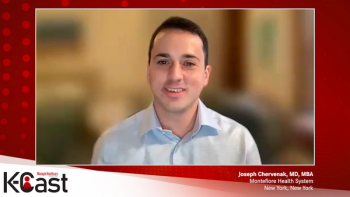
Study Reveals Association Between Adult Male Exposure to Insecticides, Decline in Sperm Concentration
Adult male exposure to organophosphates (OP) and N-methyl carbamates (NMC) insecticides is associated with lower sperm concentration, according to a
Research spanning across many populations indicates the significant decline in average sperm concentrations over the past century. The potential continued decrease poses a threat male fertility.
Oligospermia, or a low concentration of sperm, is s often used in the diagnosis of male factor infertility with an unknown cause.
Bottom of Form
In recent decades, there has been more discussion regarding the harmful effects of today’s insecticide use on sperm concentration. However, studies addressing this issue are still rare.
The study's researchers employed rigorous systematic review and meta-analysis methods to assess the qualitative and quantitative strength of epidemiological evidence linking adult exposure to OP and NMC insecticides with sperm concentration.
They conducted a review of scientific databases (PubMed, Scopus, and Web of Science), U.S. government databases (NIOSHTIC-2 and Science.gov), and five nongovernmental organization websites, examining epidemiological studies published up to August 11, 2022.
Using Navigation Guide systematic review methodology, the researchers evaluated risk of bias and strength of evidence.
Analyzing data from 20 studies encompassing 1,774 adult men across 21 study populations and 42 effect sizes, the study revealed a negative pooled bias-adjusted standardized mean difference in sperm concentration (−0:30, 95% CI:−0:49,−0:10; PSatt<0:01) among men more- and less-exposed to OP and NMC insecticides.
It was also observed that OP insecticides pose a potentially higher risk to sperm concentration compared to NMC insecticides, possibly due to the irreversible nature of OP cholinesterase inhibition.
However, the limited number of NMC studies prevents drawing any conclusions regarding the safety of NMCs versus OPs in relation to sperm concentration. Additionally, occupational exposures revealed a stronger association with reduced sperm concentration than environmental exposures.
Outside of this data, the overall study faces limitations.
These limitations include inconsistent reporting, missing data and the study mostly representing a cross-sectional nature, which poses challenges for causal representation.
Though, this in-depth study uncovered convincing evidence linking increased exposure to OP and NMC insecticides with reduced sperm concentration in adults.
While additional cohort studies may help address data gaps, the current strength of evidence supports the reduction of exposure to OP and NMC insecticides to ease ongoing harm to male reproductive health.
Newsletter
Get the latest industry news, event updates, and more from Managed healthcare Executive.






















